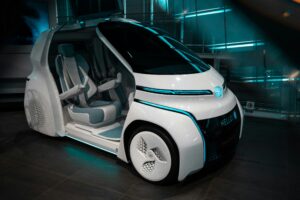Picture this: a world where computer code can write itself, where algorithms can learn from experience, and machines can think like humans. This futuristic scenario is becoming increasingly closer to reality with the rise of artificial intelligence (AI) technology.
AI, often portrayed in science fiction as either a savior or a destroyer of humanity, is making waves in various industries, from healthcare to finance to transportation. By analyzing vast amounts of data and identifying patterns, AI systems can make predictions, automate tasks, and even simulate human decision-making.
According to a recent report by Gartner, global spending on AI is expected to reach $57 billion by 2021, as companies invest in AI to enhance customer experiences, improve operational efficiency, and gain a competitive edge in the market. As technology continues to advance, AI is no longer a novelty but a necessity for businesses looking to stay ahead of the curve.
But with great power comes great responsibility. As AI becomes more integrated into our daily lives, questions about ethics, privacy, and job displacement abound. As Elon Musk famously said, “With artificial intelligence, we are summoning the demon.” It’s crucial for companies and policymakers to consider the implications of AI technology and ensure that it is used ethically and responsibly.
In conclusion, AI is not just a buzzword, but a game-changer that will shape the future of business and society. It’s up to us to harness the power of AI for good and ensure a prosperous and ethical future for all.



